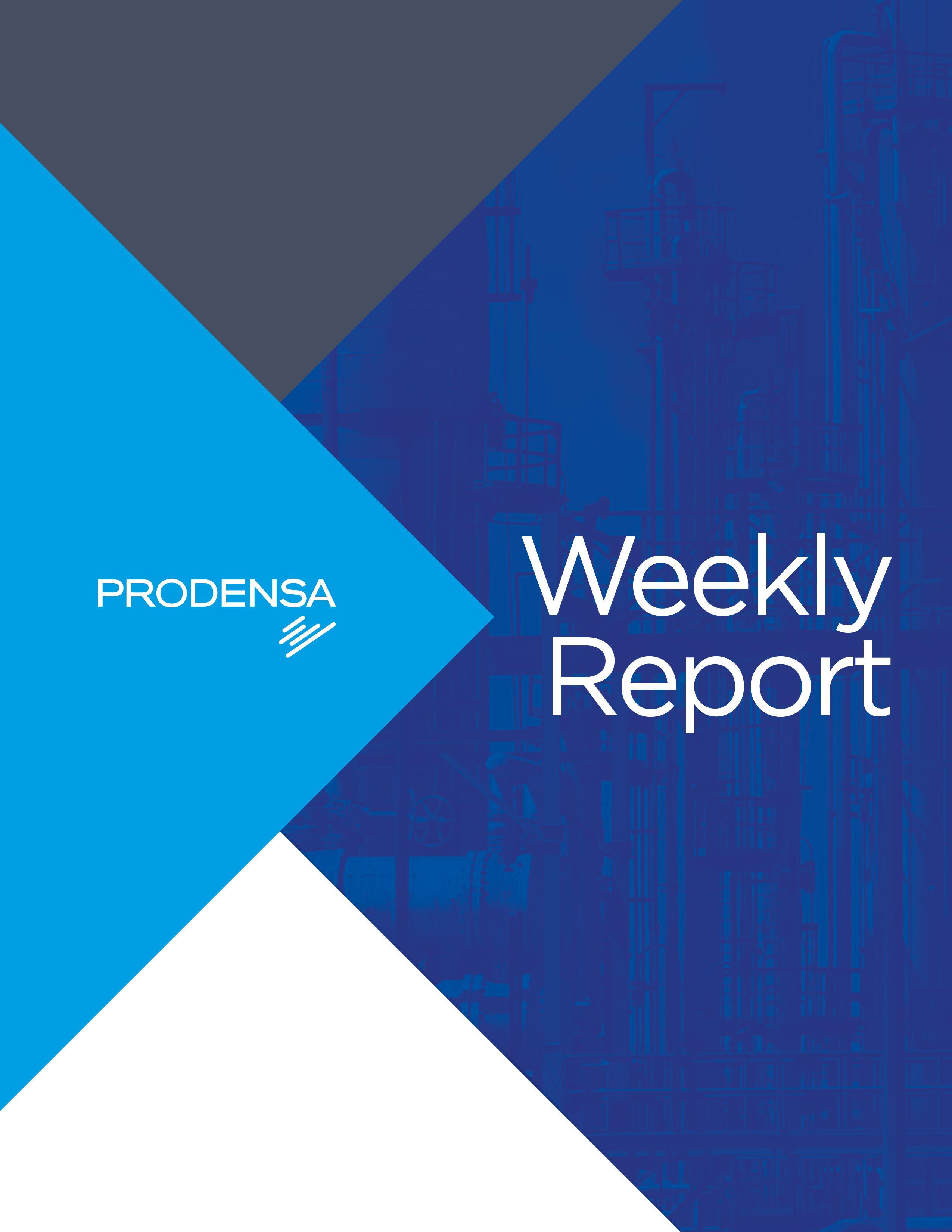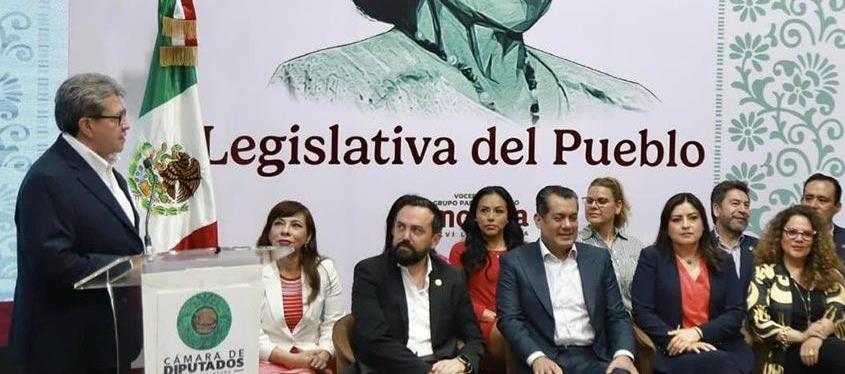
January 25-31, 2025


January 25-31, 2025
President Claudia Sheinbaum announced a $1 billion investment from Nestlé as part of the Plan México, aimed at increasing production in the country over the next three years Nestlé’s CEO in Mexico, Fausto Costa, highlighted this investment as a sign of confidence in Sheinbaum's government and Mexico's potential. The company, with 94 years of operations in the country, will expand its production capacity, including a new plant in Veracruz. The announcement was made with Nestlé executives and Secretary of Economy Marcelo Ebrard.
Source: GOBIERNO DE MÉXICO

Medline announced a $250 million investment in a plant in Nuevo Laredo, Tamaulipas, creating 3,000 direct jobs and 600 indirect jobs The U Sbased company, a leader in medical supplies, provides 67% of the surgical operations in the U S The new factory, covering 68,000 m², will strengthen its global presence Marcelo Ebrard and Yogesh Wadhera presented the project, with the groundbreaking ceremony scheduled for January 30, attended by Governor Américo Villarreal
Source: EL ECONOMISTA
U S Commerce Secretary nominee Howard Lutnick stated that Canada and Mexico could avoid Trump’s planned 25% tariffs, set for February 1, by taking stronger action on border security, particularly regarding fentanyl and immigration. Lutnick emphasized that the tariffs are meant to pressure both countries into compliance, distinguishing them from broader trade measures Trump is considering, such as sector-specific tariffs on steel, pharmaceuticals, and semiconductors, and potential universal tariffs He dismissed claims that tariffs cause inflation, arguing they will restore fairness to U.S. manufacturing.
Meanwhile, Mexican President Claudia Sheinbaum expressed skepticism that the tariffs would be enforced but assured that Mexico has a contingency plan Economy Minister Marcelo Ebrard emphasized Mexico’s commitment to maintaining the USMCA trade agreement, highlighting that Trump has ordered a 2026 review of the pact While the White House confirmed Trump's tariff plans, Ebrard asserted that Mexico has been preparing for months and remains confident in its response strategy
The situation underscores growing trade tensions, with the U S leveraging tariffs for geopolitical influence, while Mexico and Canada attempt to navigate potential economic disruptions. The outcome depends on whether diplomatic negotiations or border enforcement actions can avert the tariffs before their implementation.
Source: EL ECONOMISTA

The Mexican government reported receiving 6,244 deported migrants in the first two weeks of Donald Trump’s administration, with 1,371 being non-Mexicans President Claudia Sheinbaum downplayed the numbers, stating they are not significantly high compared to previous periods. Meanwhile, Trump signed an executive order to establish a detention center in Guantánamo for up to 30,000 high-priority undocumented migrants Cuban President Miguel Díaz-Canel condemned the decision as an "act of brutality " The move raises concerns over human rights and further tensions between the U.S. and Cuba.
Source: BBC
Mexican legislative leaders are emphasizing the importance of effective communication with the public regarding ongoing reforms Sergio Gutiérrez Luna, President of the Chamber of Deputies, highlighted the need for deputies to inform citizens about parliamentary work to prevent misinformation. He noted that the upcoming legislative period will be intense, with numerous reforms, and stressed the importance of keeping the public informed. In line with this, the Morena parliamentary group introduced the "Legislativa del Pueblo," a communication tool designed to inform about parliamentary activities through various programming segments
Deputy Ricardo Monreal Ávila, leader of the Morena parliamentary group, announced that the President of the Republic will submit two political-electoral initiatives to Congress: one addressing non-reelection and another combating nepotism Additionally, the upcoming legislative session will focus on designing reforms to secondary and regulatory laws in areas such as energy, hydrocarbons, security, the penal code, railways, and the ISSSTE law Monreal emphasized the need to align security measures with the Political Constitution, including analyzing laws related to the National Guard and the National Intelligence System. He also mentioned that the President will propose initiatives to prevent reelection and nepotism, as well as updates to public procurement laws to combat corruption Furthermore, reforms are planned for regulatory improvement, simplification and digitization of procedures, and adjustments to the penal code and criminal procedures.
Source: CÁMARA DE DIPUTADOS

In a seven-hour session, the Mexican Senate selected candidates for judicial elections through a lottery and direct appointment, following a mandate from the Electoral Tribunal. Among the direct nominees are nine women vying for Supreme Court positions, including ex-Attorney General Marisela Morales. The selection process faced criticism from opposition parties, who labeled it a “circus ” A gender mix-up briefly disrupted proceedings but was corrected Senate President Gerardo Fernández Noroña defended the process, stating that despite judicial opposition, Mexico will make history by electing judges
Source: EL UNIVERSAL

The Mexican government proposed six legislative initiatives allowing private sector participation in electricity and hydrocarbons. Energy Secretary Luz Elena González stated that Pemex can partner with private firms to enhance financing, while the Federal Electricity Commission (CFE) will share risks and benefits with investors, maintaining 54% state control The plan includes self-consumption and electricity generation schemes Pemex will have priority in exploration and can enter mixed-development contracts Additionally, a National Energy Commission will replace previous regulators under the Energy Ministry These measures aim to boost investment and efficiency while ensuring state oversight The proposals will soon reach Congress
Source: REFORMA
The proposed Law aims to reduce bureaucracy, cut government procedures by 50%, and ensure 80% of them are online. It will establish a unified digital portal, a personal digital record, and a tool for digital identification A National Center for Public Technology will oversee technology development The law requires constitutional reforms and replaces the General Law of Regulatory Improvement, streamlining services to reduce corruption and inefficiencies
Source: ANIMAL POLÍTICO
Secondary Laws of the Energy Reform
Presented by: Ministry of Energy, Luz Elena González
Objective: To reverse the 1992 and 2013 energy reforms in order to strengthen PEMEX and CFE as stateowned productive enterprises, ensuring energy sovereignty, social justice, and strategic planning of the sector
Status: Sent to Congress for discussion and approval
Agreement Suspending Deadlines and Terms for Procedures Before the Ministry of Economy via the Mexican Foreign Trade Digital Window
Presented by: Ministry of Economy
Objective: The deadlines and terms for procedures processed before the Ministry of Economy through the Mexican Foreign Trade Digital Window will be suspended from February 8 to February 15, 2025
Status: Published in the DOF

National Law on Simplification and Digitalization
Presented by: Agency for Digital Transformation, Pepe Merino
Objective: Constitutional reforms to Articles 25 and 73, followed by the repeal of the General Law of Regulatory Improvement and the enactment of the new National Law on Simplification and Digitalization. To streamline bureaucratic processes by reducing the number of procedures, standardizing requirements, and digitalizing services, aiming to eliminate corruption and unnecessary regulatory burdens
Status: Sent to Congress for discussion and approval
